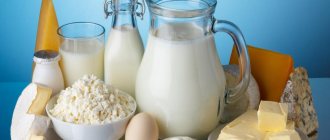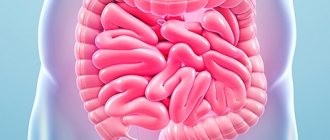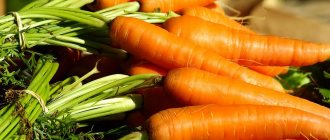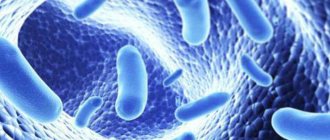Laxative products: list
Constipation is not only a symptom of many diseases, but also a consequence of intestinal dysfunction. Constipation occurs in the rectum. Sometimes its appearance is provoked by something, in other cases it is pathological. Most often, the appearance of this trouble is explained by a violation of nutritional rules. In addition to the absence of defecation, abdominal pain, a feeling of fullness, headache, intoxication may appear, there may be no desire to eat, or what is eaten is returned as vomit. The most unpleasant thing with constipation is stool. It is rough, heavy and smelly. Going to the toilet is difficult and painful. You may push a lot to pass a little stool, but not get any relief. In addition, due to overstrain, the walls of the blood vessels in the eyes burst, the blood vessels become tense, and constant migraines, hemorrhoids and anal fissures may appear (which in turn leads to inflammatory processes, painful wounds and bleeding).
What is the treatment for constipation?
- Improved peristalsis (constriction) of the intestinal walls
- Stool softening
- Stimulation of intestinal gland secretion
IMPORTANT: A balanced diet, which will consist of foods with a “laxative” effect, can help you cope with the problem of constipation.
You can prevent and treat constipation without resorting to medications (suppositories, laxative syrups, enemas). To do this, it is important to saturate your menu with foods rich in fiber.
Fiber is a dietary fiber that is later fermented into mucus, which coats the stool and makes it easier to pass.
Another, no less important “laxative” substance is organic acid. It is able to directly affect intestinal motility, increasing its activity.
It is also interesting that “sugary” foods (berries, fruits, dried fruits, beets) “attract” water to themselves, which means the feces themselves become “watery.” In addition, “sugary” foods can “ferment,” and the substances they release during fermentation directly affect the glands, provoking intestinal contractions.
The same principle of action applies to salty foods (“attracting” water). Fatty foods make stool “soft”, so it is easier for it to move through the intestines.
Even cold foods can affect intestinal function. Such food contains “carbonic acid”. This food affects the thermoreceptors in the intestinal walls, causing them to contract more strongly. What can be classified as cold foods: soda, kvass, kumiss, okroshka, beetroot soup, ice cream.
Products with laxative effect:
- Cereals. We are talking about whole grains and coarse cereals. Such products are not completely digested, but directly act on the intestines and its walls. The most effective are bran, wheat, and oats.
- Cereals. We are talking about “dark-colored” cereals (not white, like rice, for example - it strengthens). Cook porridge from buckwheat, oatmeal, pearl barley and millet. It is advisable to add vegetable oils and pieces of vegetables or fruits to dishes.
- Vegetables. They contain a lot of dietary fiber, which quickly saturates and promotes the movement of feces through the intestines.
- Fruits. They contain not only dietary fiber, but also organic acids and sugar.
- Vegetable oil). They act very simply - they soften the intestinal walls, as if “lubricating them” and this facilitates the easy passage of feces.
- Dairy products. Products fermented with “live” bacteria can improve the intestinal microflora and affect its peristalsis.
What weakens feces?
How to soften stool when constipated yourself
If the lack of stool is not accompanied by a rise in temperature and severe abdominal pain, then you can cleanse the intestines of accumulated feces on your own. In order for the emptying process to be painless and not damage the walls of the small and large intestines, it is necessary to first soften the stool and only then induce defecation.
How to soften an adult's stool at home? There are several options, among which enema, medications and vegetable oils are the most popular.
Laxative fruits and vegetables: list
Laxative vegetables:
- Pumpkin – is able to regulate bowel function, soften stools and help move feces.
- Beets – the rich sugar content of the root vegetable helps to “attract” water and the stool becomes watery.
- Cabbage has a lot of dietary fiber, which “irritates” the intestinal walls.
- Peas and beans - improve and speed up the digestive process.
- Greens - in addition to the fact that any greens contain a huge amount of dietary fiber, they also contain acids and substances that enhance the outflow of bile.
- Carrots are rich in sugar, fiber and organic acids.
- Seaweed - actively stimulates the gastrointestinal tract due to its rich dietary fiber content.
"Laxative" fruits -
- Plum - it contains a special sugar “sorbitol”, which is not absorbed by the intestines, but actively affects the intestinal walls.
- Pear – the pulp contains a lot of sugars, and the skin contains fiber.
- Banana - in addition to the fact that these fruits contain a lot of fiber, banana is a champion in potassium content - a mineral that maintains water-salt balance.
- Apple - the fruit is a source of pectin, which can actively influence the intestinal walls.
- Kiwi – the pulp of the fruit is rich in dietary fiber
- Avocado - in addition to fiber, has a high content of potassium and organic acids.
Products of plant origin
Diet for constipation in children: nutritional rules, what you can and cannot eat
Nutrition for constipation in adults and children must include natural laxative products. Since both irregular bowel movements and the constant use of medications to cleanse the intestines cause great harm to health.
How do laxatives work?
There are several ways in which natural or chemically synthesized compounds can produce a laxative effect.
This:
- formation of bulky soft feces;
- stool liquefaction;
- hydration of the lower intestines, facilitating bowel movements;
- increased peristalsis.
Typically, laxatives, whether natural or synthetic, have multiple effects and work very effectively. Their one-time use does not cause harm. But if you use such medications frequently, they can have an extremely negative impact on your health and lead to the development of a huge number of side effects.
Foods that weaken the intestines do not work as quickly and brightly, but they do not have a negative effect.
List of proven natural remedies
One of the most effective food products for loosening the intestines are chia seeds .
The fact is that they are unusually rich in soluble fiber. 20 grams contain almost 8 grams of plant fiber. That's a lot.
Soluble fiber is a powerful laxative because it helps form bulky, soft stools. Chia seeds are so high in fiber that loose bowels are a common side effect of eating them.
Flax seeds . This product also contains a lot of plant fiber. But unlike chia, flax seeds contain not only soluble fiber, but also insoluble fiber. One tablespoon contains 1 gram of soluble and 2 grams of insoluble fiber.
If soluble plant fiber is responsible for the formation of bulky soft feces, then its insoluble form ensures their rapid movement through the intestines.
They are classified as products that weaken people for two reasons.
Firstly, they have a lot of fiber. For example, in one glass of ready-made lentils, there are 15.6 grams of fiber.
Secondly, legumes enhance the production of butyric acid, which has many beneficial properties. Among other advantages of butyric acid is its ability to enhance intestinal motility, and, therefore, “weaken” it.
Sauerkraut. It works both quickly and in the long term. Refers to laxative products due to the presence of a significant amount of fiber.
At the same time, sauerkraut not only promotes bowel movements during one specific day, but also, thanks to the presence of probiotics, treats chronic constipation.
Probiotics normalize the functioning of the intestinal microflora, and this is extremely important for eliminating problems with bowel movements.
Kefir . It also contains probiotics, and therefore, with regular consumption, helps eliminate chronic constipation.
It can also help with quick relief. True, it is not very effective and you need to drink quite a lot - at least half a liter.
“Lubricates” the lower intestines. This makes defecation easier in cases where the stool is too hard. In addition, olive oil increases contraction of the small intestine.
This product is recommended for use even when it is impossible to do without the use of medications. It has been found that medicinal laxatives work more effectively when combined with olive oil.
All green vegetables (spinach, kale, lettuce, all types of cabbage, etc.). Rich in magnesium. And the lack of this microelement often leads to constipation. It is not for nothing that medicinal laxatives often include magnesium, which thins stool by attracting additional water to it.
Tomatoes . They contain a lot of fiber. To combat constipation, they are useful because they are usually included in the menu in raw form. And this distinguishes them from many other vegetables that we eat mainly cooked. And to treat constipation they should eat raw.
This is, for example, beets . In its raw form, it is an extremely powerful natural remedy for inducing the urge to defecate. Since it not only fills the intestines with fiber, but also actively stimulates peristalsis.
However, not all people can eat beets raw. Moreover, not everyone’s health allows them to do this. Since both raw beets and their juice have contraindications for consumption.
Pumpkin . It works very effectively. And not only in raw, but also in finished form. In addition to the abundance of fiber, it contains a lot of potassium, which maintains the correct electrolyte balance in the intestines. Which is extremely important for loose stools, which can be caused by this vegetable.
Apples . Amazing fruit. Since it is indicated for nutrition during diarrhea, and at the same time it is a laxative product, useful for constipation in adults and children.
Apple pectin is not only an excellent prebiotic that nourishes beneficial intestinal microflora. It also enhances the contraction of the colon, thereby helping stool move towards the exit as quickly as possible.
In terms of their chemical composition, pears , kiwis , many berries (strawberries, blueberries), as well as carrots, are also similar to apples .
There is pectin in citrus fruits. But in much smaller quantities. Sometimes they are also advised to eat for relief. However, their healing effect in this case is mainly due to the presence of a large amount of moisture, which many people suffering from chronic constipation lack.
Peaches, apricots . Fiber with a lot of moisture is just what you need to quickly form soft stools.
Plums . In addition to the fact that plums contain fiber, including its variety - pectin, they contain another compound that is necessary to eliminate constipation. This is the sugar alcohol sorbitol. This substance attracts additional moisture into the stool. Due to this, they become more liquid and rush to leave the body.
Avocado . Excellent for helping to empty the intestines. Despite its delicate creamy consistency, the fruit is rich in plant fiber. In addition, it contains healthy oils, the effect of which on the intestines is similar to the effect of olive oil.
Prunes. One of the most popular products that loosen stool in adults and children. Its effects are similar to those of fresh plums, but are often even more pronounced due to the higher concentration of sorbitol.
Prunes work even more effectively than some medicinal plants used to cleanse the intestines.
Dried apricots , raisins , figs , etc. They do not work as effectively, because they cannot boast of a high concentration of sorbitol. But they contain more potassium, which helps maintain electrolyte balance in the intestines. And, in addition, to a lesser extent than prunes, they cause bloating and gas formation.
- 1 cup contains 14 grams of fiber (both soluble and insoluble).
- Effectiveness has been proven even for elderly hospital patients.
- It was also found that regular inclusion in the diet allows 59% of older people who constantly use medicated laxatives to stop using these harmful pills.
He has such an influence on everyone. It's just not always expressed so clearly. Coffee increases the release of the hormone gastrin, which, among other functions, is responsible for the contraction of intestinal muscles.
To enhance the laxative effect of coffee, it should be drunk rarely and always after meals, since it is at this time that gastrin synthesis reaches its maximum.
Sugar substitutes such as erythritol or xylitol (sorbitol) contain sugar alcohols. And therefore they work similarly to prunes. They attract additional water to the intestines. And it helps soften the stool.
Not all people are affected greatly by sugar substitutes. But for some, chewing sugar-free gum is enough and they go to the toilet.
Since sorbitol (xylitol) and erythritol are by no means the most harmful of all sugar substitutes and even provide some health benefits, their inclusion in the diet can be justified to combat constipation. But only in small quantities. And only when there is intestinal sensitivity to them.
Don't forget about water!
Very often, problems with bowel movements are associated with insufficient hydration of the body. He receives so little ordinary drinking water that he is forced to save it like the apple of his eye and there is no moisture left to liquefy the stool.
Therefore, the first thing you need to do if you are faced with problems with daily bowel cleansing is to drink more ordinary clean water.
And in addition to water, it wouldn’t hurt to include drinks in your diet that help normalize the functioning of microflora. And this is not only kefir and other natural lactic acid products, but also kombucha, which is a naturally fermented drink. This means it contains an abundance of probiotics.
And, of course, we remember about watermelon . The berry is seasonal. But when it is possible to include it in your diet, people suffering from chronic constipation should definitely do so. Watermelon perfectly moisturizes the body, while also adding a noticeable amount of fiber. This is just what you need to immediately go on important errands.
What foods can be given to children with constipation: diet for constipation
The most common problem that worries many young parents is constipation in the baby. This pathological phenomenon is explained by the fact that in young children the gastrointestinal tract system is not yet fully formed, therefore, malfunctions are often observed in its working functions, which is the cause of stool retention.
In this regard, parents are interested in what foods to give their child for constipation, so as not to aggravate the situation, and which ones are better to avoid.
Constipation in children
Constipation (constipation) is the absence of bowel movement for two or more days. The digestive system of a child’s body is at a developing stage, so it does not work entirely correctly.
However, there are a number of external factors that can provoke delayed bowel movement:
- Early introduction of complementary foods (up to 6 months).
- Insufficient fluid intake.
- Heredity.
- Dysbacteriosis.
- Worm infestation.
- Wrong diet.
- Taking certain medications.
- Psychological factor.
- Fiber deficiency or excess presence of proteins and fats.
- Weak muscles due to the child’s low physical activity.
Symptoms of constipation in children
- Hard and dry feces.
- Fecal smears on underwear (encopresis).
- The presence of blood in feces, panties and toilet paper.
- Straining during defecation.
- Bloating.
- Temperature.
Kinds
There are the following types of constipation in children:
- Functional.
- Organic.
- False.
- Episodic.
- Spicy.
- Chronic.
If a child has problems with the process of defecation, this situation should not be left to chance, which is fraught with many complications, including childhood hemorrhoids, as well as other unpleasant phenomena:
- Rectal prolapse.
- Self-poisoning of the body with fecal toxins.
- Weakening of the immune system.
- The appearance of anal fissures.
- Development of concomitant pathologies.
However, before transferring your baby to a special diet, you need to consult a doctor and undergo an examination to accurately determine the cause of constipation.
Features of baby food for constipation
A diet for children with constipation is a key factor in the complex treatment of this pathological abnormality. Its careful observance speeds up the baby’s recovery process and brings the moment of returning to good nutrition closer without the risk of developing any undesirable consequences for the body in the future.
Diet for constipation in children is a key factor in the complex treatment of the disease
In addition, with a balanced diet, the small body receives a sufficient amount of important substances : proteins, carbohydrates, fats, microelements and vitamins.
Source: https://storm24.media/news/35778
Which fermented milk product loosens stool?
The uniqueness of such food products is that they have a very rich and unique composition. Any fermented milk product contains not only vitamins and minerals, but also beneficial bacteria, as well as lactic acids.
What products you need to pay attention to:
- Kefir - this product is very unique, since fresh (1-3 days) non-fat kefir weakens, but “old” (more than 3 days) already strengthens.
- Milk – fatty milk weakens you, and “too” fatty milk can even cause poisoning.
- Ryazhenka – has a good laxative effect, it is very light, softens feces.
- Sourdough – due to the high content of “beneficial” bacteria, gives a very good laxative effect and normalizes intestinal function.
- Curdled milk – normalizes stool and water-salt balance in the body.
- Yogurt – contains bifidobacteria, which normalize stool and strengthen the immune system.
- Sour cream – fatty sour cream can weaken you, but very fatty sour cream can even cause indigestion.
Dairy products
Fruits will help with constipation
It is advisable to focus on raw fruits
, but don’t forget that baked ones have no less benefits. As a supplement, you can consume both canned fruits and dried fruits.
In case of constipation, you can eat the following fruits: apples, unpeeled pears, bananas, grapes, prunes, dried apricots
and many others.
Now let's focus on fruits and understand everything in detail.
Do apples weaken or strengthen the intestines?
Apples themselves are a very interesting fruit. Many experts say that when eating apples or their puree, a strengthening effect (fixes) on the body is manifested. However, if this fruit is baked in the oven, then in this case the effect will be the opposite, that is, it will have a laxative quality (weakens). If you want to enhance the “laxative effect”, you can eat a few fresh apples, but this should be avoided on an empty stomach. Honey taken on an empty stomach can enhance the effect.
Do pears weaken or strengthen the intestines?
This fruit, like apples, is very multifaceted, namely, it can weaken and strengthen. The result will depend only on the form in which you consume the fruit. In what cases does the pear weaken? It's simple. Simply eating pears raw has a laxative effect. Note that the pear must be juicy and sweet.
For the opposite effect, when you need to secure a chair, he recommends pear jelly as a folk remedy. Drying pears with oatmeal broth can also be an additional option. In these cases, the pear will strengthen.
Beets: how to use, as a laxative?
Beets are the most popular and effective food product, which has a powerful laxative effect.
How to take it:
- Raw beets. It has a rich supply of dietary fiber, which makes the intestines work actively. You can eat whole or grated beets; they have a fairly pleasant taste.
- Boiled beets. Surprisingly, this root vegetable, even after cooking and exposure to high temperatures, does not change its chemical composition and therefore the properties of boiled beets are exactly the same as those of raw ones.
- Beetroot juice. It is useful to drink regularly to normalize stool.
What fruits do you eat for constipation?
To normalize stool, first of all, you need to introduce a sufficient amount of food containing fiber into your diet.
This includes fruits and vegetables, both fresh and boiled and baked.
Fresh plums help remarkably, they are as effective as prunes for constipation.
The following fruits with a noticeably laxative effect are most effective for long-term stool retention:
- citrus fruits (especially if consumed in the morning)
- grape
- plums
- watermelon
- yellow bananas
- kiwi
- mango
It will also be useful to eat berries: strawberries, blackberries, cherries, raspberries, etc. You can eat them fresh, add them to tea or compote, or make fruit salads and light desserts with them.
To prevent the opposite effect, you need to monitor the ripeness of fruits and berries: unripe fruits may be too heavy for the stomach, so digestion will be difficult.
Laxative salads: recipes
The most effective salads:
- Beetroot. The most important component in the salad is beets, which have the most laxative properties. It should be grated using a coarse grater or a Korean carrot grater. The salad is flavored with a few tablespoons. any vegetable oil, a couple of cloves of squeezed garlic and herbs.
- Cabbage. To prepare, you should chop several types of cabbage, such as white, blue and Chinese cabbage. The taste of the salad can be improved with chopped herbs, vegetable oil and finely chopped onions.
- Carrot-apple. Very simple, tasty and “dessert” salad. It's easy to prepare - grate the carrots and apple on a coarse grater, season with 1-2 tsp. linseed oil. If desired, you can sweeten it a little.
- Fruit. To do this, you need to mix chopped apple, pear, kiwi and other fruits (all have a weak or strong laxative effect) and season with a few tablespoons. yogurt, sprinkle with raisins or prunes.
- With celery. Celery, apple and carrot are grated in equal proportions. You can add white cabbage and the green part of celery, season with oil.
- Brush salad. The classic salad consists of cabbage (white), carrots and beets. They are rubbed in equal quantities and mixed with oil.
"Laxative" salad
Laxative juices
Juices, especially those with pulp, have an excellent diuretic effect. It is best to make them yourself, since store-bought juice does not bring any benefit , but rather only harm.
It is recommended to drink laxative juices on an empty stomach.
It is best to drink a glass of fresh juice in the morning, 30 minutes before breakfast .
The laxative effect is most shown by juice from beets, carrots, apricots, oranges, apples, and pineapples.
Often juices can be mixed for greater effect. These fruit smoothies are much tastier and healthier.
Video:
Laxative drinks: recipes
Any freshly squeezed fruit or vegetable juice, decoctions of dried fruits and dried berries have a laxative effect.
It is also useful to drink oil dissolved in water, which will coat the intestinal walls and help move feces.
In addition, it is believed that maintaining a water-salt balance (namely, at least 2 liters of water per day) will help avoid constipation.
What drinks can you drink:
- Beet juice
- Tomato juice
- carrot juice
- Pear juice
- Plum juice
- Dried fruits compote
- Red rowan decoction
- A glass of warm water and 1 tsp. honey
- A glass of warm water and 1 tbsp. linseed oil
- Cucumber juice
- Green tea with milk
- Flaxseed decoction
Do the crackers stick? Products - laxatives for the intestines
Previously, this disease haunted mainly young children and the elderly, but in the modern world, with the advent of public transport, computers, and office sedentary work, it is increasingly overtaking middle-aged and even young adults.
An important role in this phenomenon was played by the increase in the amount of meat foods in the diet and the reduction in the popularity of plant foods.
The best way to deal with constipation is not to let it get to you, and to do this you need to avoid a sedentary lifestyle and choose a balanced diet for yourself, taking into account which foods strengthen and which weaken.
If a person is in such a condition that he cannot get rid of constipation on his own without medical help (senile atony, complications during pregnancy, diseases that provoke constipation, forced restriction of mobility), then a specially selected diet of dishes that weaken the adult and children’s intestines can supplement and to a certain extent replace medications. This is especially important in late pregnancy, when doctors prohibit taking all strong laxatives in order to avoid premature birth, and weak ones are no better than a fruit-kefir diet.
Laxative products can be divided into several categories based on their mechanism of action:
1. Liquid oils of vegetable origin - these products lubricate the intestinal walls, facilitating the passage of food and protecting the mucous membrane from aggressive influences.
It is better not to get carried away with oil in large quantities and in its pure form, because it sharply increases the load on the bile system.
During pregnancy, oil therapy is equivalent to using a strong laxative and is completely prohibited, and you should not expose the body to such stress when breastfeeding a child.
2. Intestinal stimulants - marinades, sour juices, fermentations, fermented milk products, hot spices and so on. They accelerate the digestion of food in the stomach and the production of bile, leading to a general increase in gastrointestinal motility. Excess of such food is dangerous during pregnancy and some stomach diseases associated with increased secretion.
3. Products that cleanse the intestines - fruits, berries and sweet vegetables with a high content of water, pectin, oligosaccharides, fiber. They are natural enterosorbents and necessary food for the development of healthy intestinal microflora; they have no contraindications for age or health.
4. Ballast foods with a high fiber content - greens, vegetables, some cereals, bran, rye bread. Fiber is necessary for the process of fecal formation; its lack in chyme (discharge from the small intestine) leads to the sticking of feces on the walls of the large intestine and the gradual development of pathological processes.
Review of the most available products
1. Olive oil – has the best taste and combination of fats among all common vegetable oils; it goes well with salads, including as part of mayonnaise. To prevent constipation, you can add a little olive oil constantly to various dishes, and for treatment, use 1 tablespoon an hour before breakfast, washed down with water and lemon juice.
2. Fermented milk products (kefir, fermented baked milk, yogurt, kumiss) have a mild laxative effect on the intestines. To combat constipation, drink a glass of fermented milk drink 3 times a day before meals, which must be no older than 24 hours. This remedy is suitable for adults and children without any restrictions, but you need to make sure that the drink is not too sour.
Long lasting effect at home!
3. Dried fruits are the safest natural laxative, the effect of which is based on the high content of fruit sugars, pectin and fiber.
The most pronounced properties of prunes are those containing sorbitol, a component of many anti-constipation medications.
The main rule when consuming dried fruits is to drink them with a large volume of water, so you can prepare infusions, decoctions, compotes, and drink them in unlimited quantities. Prune decoction is a well-known laxative during breastfeeding, which can relieve constipation for both mother and child.
4. Peeled apples, most sweet, tart fruits and berries, watermelon, melon, pumpkin, ripe bananas - the mechanism of action is the same as that of dried fruits, but can lead to increased gas formation, so you should not overeat them during flatulence. It is better to eat fruits an hour before meals to prevent foods from lingering in the stomach, releasing gases.
5. Sauerkraut - combines the effects of normalizing intestinal microflora, mild stimulation of digestion and a high amount of fiber.
Compared to other vegetables rich in fiber that are useful for constipation, such as fresh cabbage, carrots, beets, tomatoes, cucumbers, it stands out for its high taste and more pronounced effect.
You can constantly eat sauerkraut, greens or vegetable salads for preventive purposes, however, if constipation is caused by flatulence, then it is better to avoid these fresh products, giving preference to their stewed or boiled versions.
6. Buckwheat, pearl barley, millet, oatmeal, black, bran bread - these products do not directly weaken the intestines, but provide it with a sufficient amount of ballast substances necessary for the movement of the digested mass. An adult needs 40 grams of fiber per day, more than half of which is recommended to be eaten in the morning in the form of porridge with salad.
1. bitterness in the mouth, putrid odor;
2. frequent gastrointestinal disorders, alternating constipation with diarrhea;
3. fatigue, general lethargy;
It is also worth mentioning several products that do not weaken so much, but can gently stimulate digestion - instant coffee, lemon, orange, tomato juice, green tea.
What should you avoid if you are constipated?
In contrast to laxative products, there is a wide category of dishes that help strengthen the stool. A healthy person can consume them almost unlimitedly in combination with foods that have the opposite effect, but a person suffering from constipation is better off abstaining. The list of such products includes:
1. Dishes with a high starch content - mashed potatoes, polished (white) rice, semolina porridge, cereal decoctions, jelly, white bread, pastries.
2. Products that contain tannins and astringents - black tea, ground coffee, cocoa, chocolate, pomegranate, persimmon, bird cherry, fresh grapes and red wine, nuts, legumes, blueberries in any form.
3. Applesauce and green bananas actively absorb water from the environment, slowing down the passage of other food.
4. Old fermented milk drinks, cheese, cottage cheese.
5. Dishes that slow down gastric peristalsis - fried, smoked, whole boiled milk, animal fats, fatty meats, rich broths, mushrooms.
Constipation in a newborn makes parents very worried about their condition.
Age-related changes are often accompanied by disruption of the functioning of many organs. Doctors note.
Constipation is not a disease, but a symptom of gastrointestinal diseases. Causes of occurrence.
Which products strengthen and which weaken?
Some products strengthen, others weaken, why?
To put it simply, easily digestible foods containing little fiber do not force the intestines to work and, accordingly, strengthen them (rice, white bread). Products containing large amounts of fiber and coarse fibers (vegetables and fruits) weaken. By irritating the intestinal walls, they cause it to contract, pushing food forward.
As a natural cure for constipation and to stimulate bowel function in a child, use a squeeze of vegetables and herbs (squeeze juice from carrots, parsley, beets and other vegetables, the remaining fiber will be coarse fiber in its pure form).
If a child is constipated, an exercise that stimulates intestinal motility helps: bend your left leg and right arm and reach your elbow to your knee 15 times, then vice versa.
If your child is constipated, half a glass of warm water on an empty stomach in the morning will help. And then, during the day, you can add a little (for a child 3 years old, no more than 1 tsp) vegetable or olive oil to food (for example, stewed vegetables).
Baked apples and pears (pectins) are also useful for constipation. But raw grated apple on an empty stomach (a recipe that is good for constipation in adults) is strictly forbidden for children. Because children already have an increased level of gastric secretion.
They're weakening
Fermented milk products, no more than 1 day have passed since the production date, are weakened. Fermented milk products, more than 2 days have passed since the production date, are fortified. Any fermented milk products for intestinal disorders should be consumed with caution.
Milk promotes stool retention; it should be limited if the child has constipation.
Grapes promote gas formation and fermentation in the body. If any digestive disorders are present, it should be excluded from the child’s diet.
The main thing is to drink more water for any intestinal disorders, be it constipation or diarrhea.
And, of course, tell your local pediatrician or contact a pediatric gastroenterologist if your child has problems with bowel movements. After all, constipation and diarrhea can be symptoms of a wide variety of diseases. The doctor will prescribe medications or bifidobacteria to help your baby's intestines.
The most popular articles on this topic:
Source: https://zooplay.ru/krepyat-li-suhari-produkty—slabitelnye-dlya-kishechnika/
Menu with laxative effects of products for adults with constipation for a week
By properly planning your menu for the week, you will get rid of the problem of constipation for a long time.
First half of the week
Second half of the week
Dish recipes
One way to get rid of the problem is to drink freshly squeezed juices. Beetroot drink copes with this task perfectly. To do this, peeled raw vegetables are passed through a blender or meat grinder and strained. Apply 1 tbsp before bedtime. spoon.
Pastes that have laxative properties can be eaten either in their pure form or spread on a slice of bread. To do this, take 300 grams of figs, dried apricots, and prunes. The ingredients are washed, passed through a meat grinder, and mixed. The paste should be stored in the refrigerator . You can eat no more than 2 spoons at a time.
For the salad, chop a head of cabbage, chop celery, beets, and grate carrots. Eat in small portions several times a day.
Fruit salad is prepared from grated apple, chopped orange, chopped nuts and honey.
For pumpkin puree soup, bring 1 liter of broth to a boil, add 300 grams of pumpkin pulp and 200 grams of raw potatoes. Onions and carrots are sauteed in a mixture of vegetable and butter.
Once cooked, the frying is poured into the pan with the soup. After salting, stand for about 15 more minutes.
After cooling the ingredients, beat them using a blender. Pour into plates, add greens and serve.
To normalize intestinal function, drink a blueberry cocktail. Prepare it in a blender by beating 100 ml of blueberries and 150 ml of kefir. Oatmeal is ground in a coffee grinder and added to the drink along with honey. It is advisable to drink a freshly prepared mixture.
Menu with laxative effects of products for children with constipation for a week
Constipation in a child is a consequence of poor nutrition.
There are other reasons:
- Incorrect feeding
- Not drinking enough
- No power mode
- Unhealthy food
- Low child activity
The correct way to eliminate constipation in a child is to balance his diet.
What to feed (menu):
- Vegetable salads
- The vinaigrette
- Vegetable stew
- Stew
- Fresh fruits
- Baked apples
- Honey
- Boiled or steamed poultry and fish
- Dried fruits
- Dairy products
- Curd casseroles
- Fresh juices
- Fresh milk
- Boiled porridge
- Vegetable casseroles
What not to feed:
- Strong black tea (it is better to brew berries or herbs).
- Do not feed semolina porridge and rice
- Include radishes, radishes, and daikon in the menu little and rarely.
- Don't add garlic to your dishes
- Moderate baked goods and breads, cookies
- Feed pasta in small quantities
- Limit foods that are too fatty
- Limit foods that are too high in protein
IMPORTANT: Maintain a drinking regime and always offer your child juices, decoctions, teas, water, and milk.
Constipation diet for baby
Why does constipation occur?
There are a lot of reasons, among which there are several main ones related to chronic:
- giving up an active lifestyle;
- constant stress and emotional pressure;
- drug abuse;
- poor nutrition.
A small list of diseases that can often lead to constipation: injury in the anus of the intestine, a malignant tumor in the intestine, and so on.
What fruits weaken the intestines is of interest to many people who love these foods? As many people know, fruits themselves are very healthy and valuable.
. They contain a lot of vitamins, and therefore, according to doctors, they should be consumed every day. By following this simple principle, you will have the opportunity not only to get rid of constipation, but also to provide assistance and prevention to your body.
Menu with laxative effects of products for pregnant women and breastfeeding for a week
How to saturate your diet for pregnant women:
- Vegetables and fruits
- Fermented milk products
- Pickled vegetables
- Stewed vegetables
- Stew
- Pumpkin with porridge, baked, in a pie
- Freshly squeezed juices
- Vegetable salads
- Fruit salads
- Vegetable and chicken soup
- Cold beetroot
- Vegetable caviar
- Fish, poultry and beef
- Berries
- Cereals and cereals, boiled porridges
What to eat for a nursing mother:
- Beetroot (soup, beetroot soup, borscht without cabbage, beetroot caviar).
- Baked pumpkin
- Kefir with flaxseed
- Zucchini cutlets and pancakes
- Vegetable cutlets (carrots, beets, greens, potatoes)
- Baked apples
- Bananas
- Boiled porridges, cereals
What a nursing mother should not eat:
- Pickling
- Pickles
- Kvass
- Okroshka
- Tomatoes
- Cabbage
- Pear
- Berries
Recipes
Below are several delicious and healthy recipes for dishes made from laxative products.
"Laxative" sandwich
For constipation, it is recommended to eat a laxative sandwich. To prepare it you will need black bread.
Among the useful laxative products you need to purchase:
- dried apricots, figs and prunes in the same proportion, which is equal to 300 grams.
All this needs to be mixed and put through a meat grinder. Then, using a teaspoon, you need to put the mixture on a piece of black bread. This dish is great for relieving constipation and also feels good in the gastrointestinal tract.
Salad "Broom"
From the name you can understand a lot of things, but the main thing is that when you take this dish, all unnecessary and harmful substances are “swept out” from the body.
To prepare it, you need to grate 1 apple (preferably red), finely chop a tangerine, grind some nuts and add 1 tablespoon of honey. Mix the whole mixture well.
Best Foods to Relieve Constipation
When treating constipation, it is necessary to choose those foods that are most suitable for all the characteristics of the body. It is not recommended to consume those foods that can clog the gastrointestinal tract to a greater extent. The most effective are fresh fruits and raw vegetables, which improve bowel function.
The most important factor in quickly relieving constipation is drinking plenty of fluids. First of all, it is imperative to drink more than 2 liters of water daily.
This process is quite normal, since drinking water provides for the enrichment of the body with a large amount of useful substances, and constipation and what clogs the gastrointestinal tract are eliminated from the body through fecal leaching.
You can learn more about products that relieve constipation from the video.











